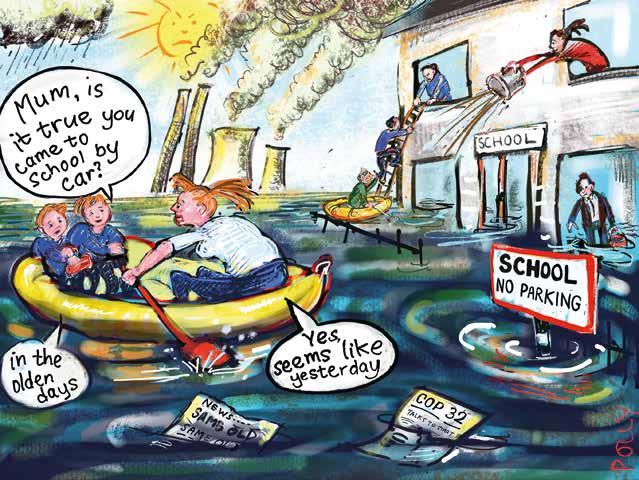
2 minute read
Polly Donnison Warwick Mansell
Cartoon by Polly Donnison
Did an obsession with academies cost lives?
Warwick Mansell is a freelance education journalist and founder/writer of educationuncovered. co.uk
“THE whole point of the academies programme is to get schools off councils. The idea that we would use local government to manage anything that we did not have to was complete anathema.”
So said an unnamed Department for Education (DfE) insider, who was quoted in a damning recent report on the Government’s management of Covid in education. If this really underpins the thinking in Whitehall on how schools in England should be organised – and it will not come as a surprise to many close observers of policy – then it has had devastating repercussions for the way the pandemic has been managed.
The quote featured in the report, Schools and Coronavirus, by independent thinktank the Institute for Government. The report won headlines for its standout finding that the Government had failed to develop a plan B for managing the pandemic in schools in summer 2020, when it became clear that an approach other than returning to normality might be needed.
But its observations on one of the debates around academisation were equally interesting: is it better to have schools supervised mainly by 152 local authorities with the DfE in the background; or by more than 2,500 academy trusts, with the central DfE trying to co-ordinate provision at a national level?
Readers of this report, which was based on interviews with Government insiders and education experts, would be left in no doubt that this administration dislikes local government, and that this lack of trust meant it failed to take advantage of municipal expertise in tackling the pandemic.
This meant that the DfE sought, disastrously, to manage matters remotely.
Over-centralised communications – schools received 148 guidance documents in two months – were “dreadful”, found the report. The DfE rejected any notion of funding free school meals during lockdown via the “hated” local authorities, choosing instead a private sector company, which then underperformed.
The Government also failed to grasp the role of local directors of public health, while councils found the DfE harder to deal with than other Whitehall departments. All of this culminated last Christmas, with ministers threatening legal action against councils which proposed closing schools early as the virus surged, only to backtrack and close them themselves in early January.
The report questions whether the problem was simply ministers’ dislike of local authorities per se, or if the academisation of nearly 10,000 schools, which is a product of that dislike, was in itself a weakness.
One academy leader contrasted the simplicity of local authorities having once been responsible for all schools with the current structure comprising thousands of academy trusts alongside local authorities, with the DfE running policy nationally, suggesting that this led to dysfunctional communication.
With local public health experts arguably better placed to mitigate the virus than the DfE, and complexity of organisation probably not an asset in a crisis, it does not seem a stretch to suggest that a more constructive, less ideologically negative view of local authorities might have slowed Covid’s spread, and thus saved lives.










